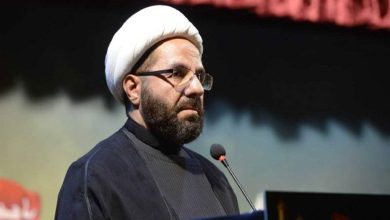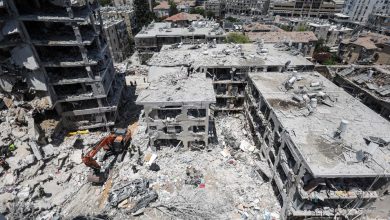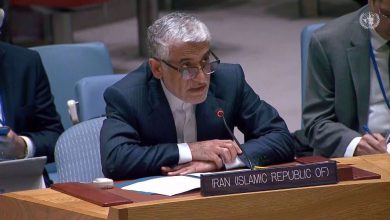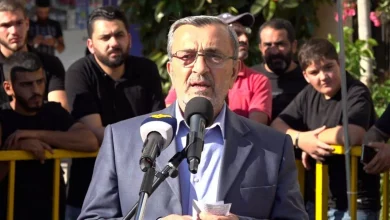Ex-Parliament Speaker Larijani: ‘israel’ Attempted Assassination of Iran’s Leaders
A senior advisor to Ayatollah Seyyed Ali Khamenei, the Leader of the Islamic Revolution, disclosed that Israel had devised a plan to assault a high-profile gathering of Iranian officials, including top government figures. The plot also aimed to target the Leader directly, but was thwarted effectively.

In a televised interview on Sunday, Ali Larijani revealed that the adversary’s strategy in this conflict was to simultaneously target IRGC commanders and critical national hubs. They had hoped to coerce certain officials into distancing themselves from the establishment through intimidation tactics.
Ali Larijani, who held the position of Parliament Speaker from 2008 to 2020, disclosed that during the conflict, Israel sought to instill fear among various Iranian figures, encompassing politicians, military leaders, and security officials.
“On Friday, I received a warning granting me 12 hours to depart Iran or exit Tehran, with the ultimatum being an equivalent fate to martyrs such as Major General Mohammad Hossein Bagheri and Major General Gholam-Ali Rashid. However, I responded appropriately to their threat,” he stated.
Addressing the alleged U.S. actions against Iran’s nuclear facilities at Fordow, Natanz, and Isfahan, Larijani described the measures as mere “face-saving” tactics, remarking, “Let them take satisfaction in that.”
Referring to Iran’s response to perceived US aggression on its territory, Larijani stated that of the 14 Iranian missiles launched, six successfully targeted the American base in Qatar. Each missile reportedly carried a 400kg warhead, delivering significant impact.
Trump, in an apparent effort to maintain his stance, asserted that “only one missile hit” while further commenting to “let him enjoy his delusions.”
On June 13, Israel initiated an unexpected offensive against Iran, reportedly with support from the United States. This assault resulted in the assassination of several high-ranking military officials, scientists, and numerous civilians, including women and children.
On the same day, Iran’s military forces, led by the Islamic Revolution Guards Corps (IRGC), initiated an unprecedented counteroffensive against the Israeli regime, termed Operation True Promise III.
More than a week into the ongoing conflict, the United States has formally announced its collaboration with Israel, signaling direct intervention as the Israeli forces face significant challenges.
On June 22, the United States collaborated with Israel in launching an attack, targeting three Iranian nuclear facilities. This action represents a significant breach of the United Nations Charter, international law, and the Nuclear Non-Proliferation Treaty (NPT).
The following day, Iran initiated a missile barrage targeting the al-Udeid air base in Qatar, recognized as the largest American military facility in the West Asia region, in a retaliatory response to United States’ aggressive actions.
In a striking turn of events, Iranian armed forces launched an offensive against Israel, targeting military and industrial infrastructure with advanced next-generation missiles that accurately struck their intended targets. Consequently, the beleaguered regime ceased its aggressive activities toward Iran on June 24 without external prompting.
In the wake of the unilateral decision, Iran also ceased its retaliatory operations after executing 22 waves of successful attacks on the territories occupied by Israel.
In other sections of his comments, the high-ranking Iranian official claimed that the United States participated in five rounds of indirect negotiations with Iran before the hostilities, allegedly as a tactic to mislead Tehran. Meanwhile, he asserted that Israel conducted the attacks in full coordination with Washington.
He remarked that the United States employed indirect negotiations as a means of deception and military aggression.
The Israeli government initiated military actions against Iran merely two days prior to the anticipated sixth round of indirect negotiations, which were set to occur in Muscat.







